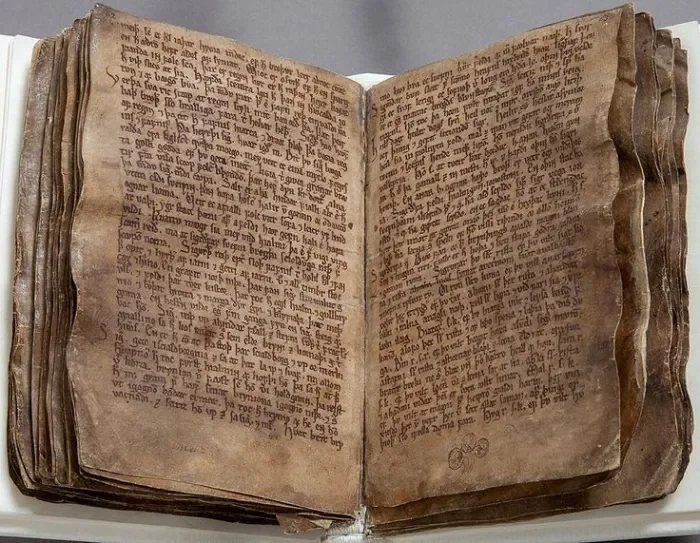
The Great Lacuna - The missing texts of the Poetic Edda
The Codex Regius is the single most important manuscript of Norse mythology—but it carries a haunting mystery at its core. Eight leaves are missing from its heroic section, a gap known as the Great Lacuna. This loss strikes at the very heart of the Sigurðr–Brynhildr tragedy, erasing the poetic account of love, betrayal, and death that once stood alongside the greatest epics of world literature. What remains are fragments and echoes: prose sagas, later German adaptations, and the faint outlines of poems now gone. This blog explores what was lost, what scholars believe the lacuna once contained, and why it matters so deeply for our understanding of the medieval Norse imagination.

The Codex Regius - Poetic Edda
The Codex Regius is more than a medieval manuscript—it is the beating heart of Norse mythology. Written in Iceland around 1270, this fragile book preserves the Poetic Edda, the only complete collection of ancient mythological and heroic poems that tell of Odin’s wisdom, Thor’s hammer, Sigurd the dragon-slayer, and the doom of Ragnarök. Lost for centuries and rediscovered in 1643, the Codex travelled to Denmark and was only returned to Iceland in 1971, where it is now celebrated as a national treasure. Without it, much of what we know about the Viking Age worldview and early Icelandic heritage would have vanished forever.

Tyr: The God Who Chose Honour Over Power
In Norse mythology, Týr is one of the most ancient and complex gods — a figure of law, war, sacrifice, and sacred oaths. Long before Odin rose to prominence, echoes of Týr can be traced back to Proto-Indo-European Dyeus, the primordial sky father, placing him among the oldest deities of the Germanic world. By the Viking Age, his role had become more focused: he was the god of justice, of binding contracts, of courage in the face of impossible choices.
Unlike Odin, who seeks knowledge through cunning, or Thor, who wins by force, Týr embodies principle above power. His defining myth is the binding of Fenrir, when he placed his hand in the wolf’s jaws as a pledge of good faith, knowing he would lose it. He did so not for glory, but because no one else would. In that sacrifice, he became the one-handed god of truth, the divine guarantor of oaths, and the patron of those who choose honor even when it costs them everything.
Týr reminds us that real strength is not always loud, and that the most sacred truths often require loss. He is the quiet, unshakable force of integrity — the god who stands where others falter, who binds chaos not for praise, but for balance.

Begin the Path: Understanding the Wyrd, the Flame, and Your Own Calling
New to Norse spirituality? Or feeling the stir of something ancient calling your name?
This post lays the foundation — explaining what Wyrd truly is, how the gods speak in flame and vision, and how to begin your spiritual journey in alignment with truth, not trends.
You’ll learn the basics of Norse cosmology, what it means to walk as a Seer or spirit-worker, and how to connect with the gods and ancestors with respect, strength, and clarity.

The Beloved God Baldr: Light, Hope, and Tragedy in Norse Mythology
Baldr, the radiant god of light, joy, and purity, stands as one of the most beloved figures in Norse mythology. Son of Óðinn and Frigg, he embodied beauty and nobility so great that even the flowers were said to bow as he passed. Yet despite his perfection, Baldr’s greatest role was tragically to die - his fate sealed by mistletoe, Loki’s trickery, and the hand of his blind brother Höðr. His death set in motion the events of Ragnarök and became a timeless story of vulnerability, betrayal, and destiny. In exploring Baldr’s tale, we find lessons not only of sorrow but also of hope, light, and resilience that continue to inspire today.

